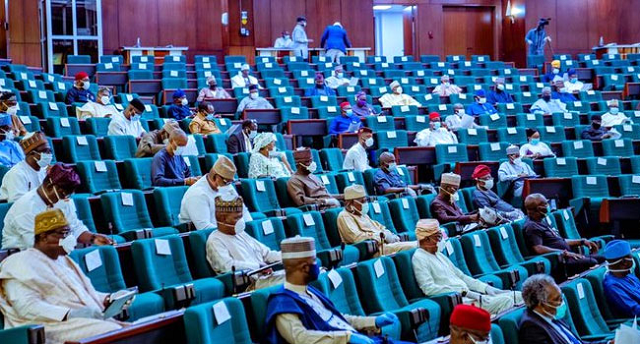The House of Representatives has raised concerns that the recent surge in gasoline prices could lead to social unrest. This warning came after a meeting between the Federal Government and labor unions on Wednesday ended without a resolution regarding the price hike.
Fuel prices increased last week, with NNPC retail stations in Abuja raising the cost from N897 to N1,030 per liter, while Lagos saw prices jump from N868 to N998 per liter. Similar increases were recorded in other regions, marking the second hike in a month, with a rise of approximately 14.8 percent, or N133.
This price surge has led to higher transportation and food costs nationwide, sparking demands from organized labor and the private sector for immediate reversal.
Both the Nigeria Labour Congress (NLC) and the Trade Union Congress (TUC) condemned the price increase, urging the government to reverse it immediately. During a plenary session, the House called on the Federal Government to address the issue swiftly, noting the severe economic hardship already facing Nigerians.
The House’s resolution followed a motion of urgent public importance, sponsored by Minority Leader Kingsley Chinda and over 100 lawmakers. Titled “Urgent Need to Suspend the Increased Cost of Petroleum and Cooking Gas,” the motion highlighted the struggles many Nigerians face in meeting their basic needs.
Chinda expressed deep concern over the rising cost of petrol and cooking gas, noting that the removal of fuel subsidies, volatile global oil prices, and the depreciation of the naira have significantly increased household expenses. He warned that the escalating prices were driving inflation, straining businesses, and pushing families into deeper financial distress.
“The surging fuel and gas prices are not only increasing the cost of transportation, food, and healthcare but are also threatening economic stability and job security,” Chinda said.
He also criticized the government’s inability to repair domestic refineries as promised, warning that the ongoing price hikes pose a serious threat to the livelihoods of millions and could lead to social unrest if not addressed.
Other lawmakers echoed these concerns. Minority Whip Ali Isa criticized the repeated fuel price hikes, urging the government to ease the burden on the public. “The people are suffering,” Isa said. “The government must listen to their cries and reconsider any policies that negatively affect the citizens.”
Yusuf Gagdi, a representative from Plateau State, argued that the motion reflected the challenges many Nigerians face, while Deputy Minority Whip George Ozodinobi added that the rising cost of goods had effectively nullified the recent N70,000 minimum wage increase.
Following the discussion, the House urged the Nigerian National Petroleum Company Limited (NNPC) and the Ministry of Petroleum Resources to accelerate efforts to repair and maintain domestic refineries to reduce dependence on imported fuel.
The House also called on the Central Bank of Nigeria (CBN) to implement policies that would cushion the inflationary effects of rising fuel prices. Additionally, lawmakers encouraged the government to explore alternative energy sources and diversify Nigeria’s energy mix to reduce reliance on petrol and gas, promoting renewable and affordable energy solutions in the long term.
State governments were also urged to introduce relief measures such as tax breaks or levies on transportation and goods affected by high fuel prices.
Despite labor unions maintaining their stance on the need to reduce fuel prices, a meeting between the Federal Government and union representatives, led by Secretary to the Government of the Federation George Akume, ended in a deadlock. Sources said both parties were unable to reach a consensus, although discussions are expected to continue.
Minister of Information Mohammad Idris assured the public that dialogue with labor leaders would remain ongoing, emphasizing that the government is committed to addressing the situation. Minister of Finance Wale Edun added that the tough decisions made by the government would ultimately yield positive results for Nigerians.
While acknowledging the global factors driving inflation, Edun insisted that the government’s policies would lead to long-term economic growth. He pointed to Nigeria’s GDP growth in recent quarters as a sign of progress, despite inflation and the rising cost of living.
Edun concluded, “We’ve made bold choices, and while there are challenges, we are confident that the economy is moving in the right direction. The worst is behind us, and we expect to see positive outcomes in the near future.”













